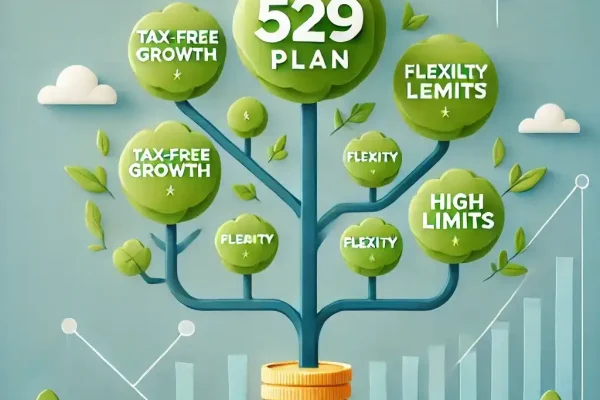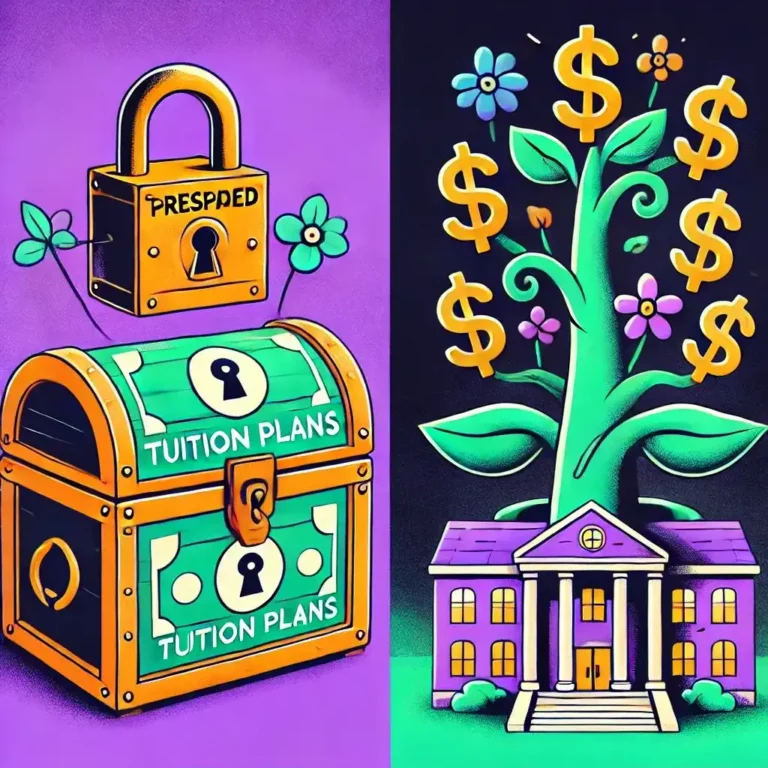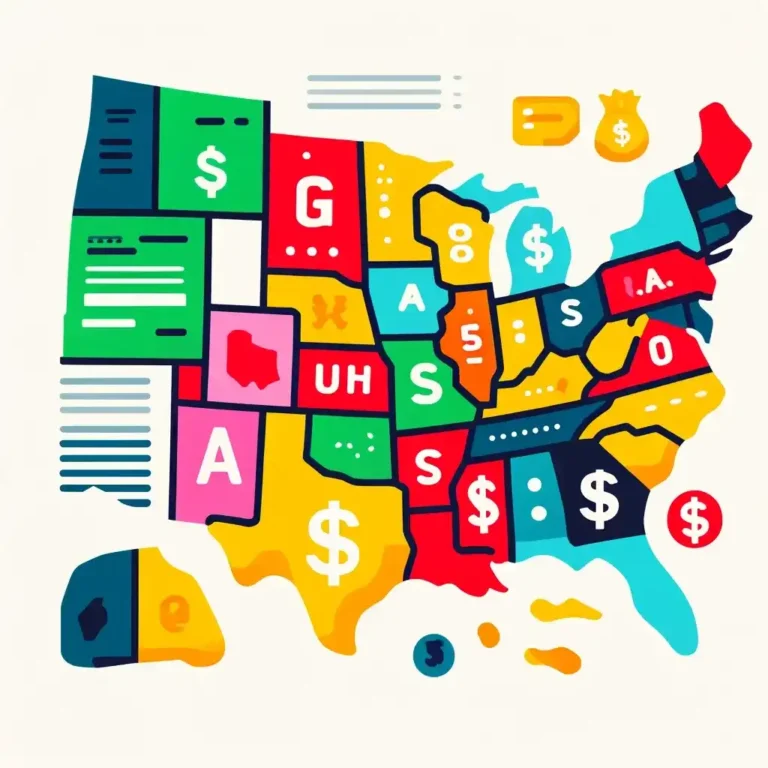Most 529 Savings Plan: A Comprehensive Guide to Tax-Advantaged College Savings

Saving for your kid’s education can feel like a daunting task, right? I get it—college costs are skyrocketing, and you’re probably wondering how to keep up without losing sleep. That’s where the most 529 savings plans come in, and trust me, they’re a lifesaver. I’ve been digging into these plans lately, talking to parents, and figuring out what makes them tick. So, let’s sit down together—imagine we’re chatting over coffee—and I’ll walk you through everything you need to know about 529 savings plans. By the end, you’ll feel ready to take on this college savings journey like a pro.
What is a 529 Savings Plan?
Think of a 529 savings plan as your secret weapon for education costs. It’s a special account, backed by states or schools, that lets your money grow without taxes eating away at it—as long as you use it for stuff like tuition or books. The name comes from some IRS rule (Section 529, if you’re into details), but what matters is how it works for you. The most 529 savings plans are all about giving you a head start on college bills, whether your kid’s still in diapers or picking out dorm decor.
I remember when my cousin started one for her daughter—she was blown away by how simple it was to set up. No income limits, no pressure—just a smart way to save. Ready to see how it fits into your life? Let’s dive deeper.

Types of 529 Plans
There are two main types of 529 plans, and picking the right one depends on your family’s vibe:
1. Prepaid Tuition Plans
Imagine locking in today’s tuition prices for college years down the road. That’s what prepaid plans do—pretty neat, huh? They’re mostly for in-state public schools, so if your kid’s got their heart set on the local university, this could save you big. But here’s the thing: if they change their mind and go elsewhere, you might get stuck with fees or a smaller refund. It’s a gamble, but it works for some.
2. Education Savings Plans
This is where the most 529 savings plans really steal the show. These are like your own little investment playground—you put money in, pick some funds, and let it grow tax-free. Then, you can spend it at any accredited school, from a community college to an Ivy League. My neighbor Dave swears by his—he started small, and now it’s growing faster than his kid’s shoe size. Flexibility’s the name of the game here, and that’s why these plans are the fan favorite.
Not sure which one’s for you? Ask yourself: “Do I want freedom or a sure thing?” Either way, you’ve got options.

Benefits of a 529 Savings Plan
So, why do people keep talking about the most 529 savings plans? Here’s what hooked me:
- Tax-Free Growth: Your earnings dodge federal taxes, and withdrawals for school stuff? Also tax-free. It’s like free money over time.
- State Perks: Lots of states throw in tax deductions just for pitching in—more cash in your pocket.
- No Tiny Limits: Some plans let you save over $500,000 per kid. Compare that to other options—it’s a no-brainer.
- Go Anywhere: Your kid could study in Texas, Maine, or even overseas. The most 529 savings plans don’t care, as long as it’s accredited.
- You Stay in Charge: Even when your kid’s old enough to vote, you’re still the one calling the shots.
I talked to a mom last week who said her 529 plan took the panic out of college planning. Sound good? Let’s keep going.

529 Plan Tax Benefits by State
Here’s where the most 529 savings plans get even sweeter—states love to chip in with tax breaks. Check these out:
Georgia 529 Plan Tax Deduction
Georgia gives you $4,000 off your taxable income per kid ($8,000 for couples). It’s like a thank-you for saving.
Ohio 529 Plan Tax Benefits
Ohio’s got $4,000 per kid too, and if you don’t use it all, it rolls over. Smart, right?
Arkansas 529 Plan Tax Deduction
Arkansas ups it to $5,000 per person ($10,000 for joint filers). That’s real money back every year.
Massachusetts 529 Plan Tax Deduction
Massachusetts keeps it chill—$1,000 for singles, $2,000 for couples. Small but mighty.
MN 529 Plan Tax Credit
Minnesota’s the overachiever here—a deduction plus a credit up to $500. No wonder their plan’s one of the most 529 savings plans people rave about.
Your state’s got its own deal—peek at it online and see what you’re working with.

Best 529 Plans by State
With so many plans out there, some shine brighter. Here are the most 529 savings plans I’d put on your radar:
Best 529 Plan for California Residents
The ScholarShare 529 Plan is a rockstar—low fees, tons of funds to pick from, and steady growth. No tax break in Cali, but it’s still a winner.
Best 529 Plan for North Carolina Residents
The NC 529 Plan mixes tax-free earnings with options for every risk level. Locals love it.
Best 529 Plans for Minnesota Residents
The Minnesota College Savings Plan is a gem—cheap, flexible, and those tax perks seal the deal.
Quick Comparison Table:
| Plan | State Tax Benefit | Fees | Investment Options |
|---|---|---|---|
| ScholarShare (CA) | None | Low | High Variety |
| NC 529 (NC) | None | Medium | Moderate Variety |
| MN College Savings | Deduction + Credit | Low | High Variety |
Want to dig deeper? Check your state’s website for the latest scoop

Special Considerations for 529 Plans
The most 529 savings plans are amazing, but let’s talk about a few curveballs:
Disadvantages of Grandparents Owning 529 Plans
If Grandma sets one up, withdrawals might ding your kid’s financial aid. It shows up as their income on the FAFSA—not ideal. Plus, she might miss out on tax breaks if she’s not in the plan’s state.
Can a Trust Own a 529 Plan?
Sure, but it’s a headache—tax rules twist, and distributions get tricky. Talk to an advisor first.
Educational Trust vs. 529 Plan
Trusts give you control but skip the tax magic. The most 529 savings plans keep it simple and tax-friendly.
Individual vs. Custodial 529 Plan
Individual plans keep you in the driver’s seat. Custodial ones? The kid takes over later under UTMA rules.
Got questions? Jot them down—we’ll tackle more later.

Can You Use a 529 Plan for Non-Traditional Education?
Here’s a fun twist—the most 529 savings plans aren’t just for traditional college:
Can You Use a 529 Plan for Flight Training?
Yep, if the school’s accredited. My buddy used his for flight school—smooth sailing.
Can I Use 529 Plans for Overseas Education?
Totally! Over 400 international schools qualify—like in Canada or Europe. Just check the list first.
Dreaming big? Your 529’s got your back.

USAA 529 Plan Review
The USAA 529 Education Savings Plan used to be a big deal—great funds, nice perks. But USAA passed it to Victory Capital a while ago. If you’ve got an old account, you’re fine; otherwise, Victory’s worth a look.
Tips to Max Out Your 529 Plan
Let’s get practical—how do you make the most 529 savings plans work harder for you?
- Start Now: Even $25 a month grows over time—don’t wait.
- Keep It Steady: Set up auto-deposits; it’s less stress.
- Grab Free Money: Use tax refunds or gift cash (up to $18,000 in 2025) to boost it.
- Tweak It: Check your funds yearly—shift gears if needed.
- Plan Smart: Don’t oversave—stick to education costs to avoid penalties.
Try this: Open a plan with $50 this week. You’ll be amazed how it adds up.

FAQs About 529 Savings Plans
Got questions? Here are ones I hear a lot:
- What if my kid skips college? Switch the beneficiary or save it for grandkids—no biggie.
- Can I lose money? Yep, if investments dip—but age-based funds lower that risk.
- Is it only for rich folks? Nope, anyone can start small and grow it.
Still curious? Drop me a note—I’ll dig up the answer.
Final Thoughts
Saving for college doesn’t have to keep you up at night. The most 529 savings plans are like a trusty sidekick—tax-free growth, big limits, and freedom to use it your way. Whether you’re vibing with ScholarShare, loving Minnesota’s tax breaks, or just want a plan that fits your crew, there’s a 529 out there calling your name. Take a peek at your state’s options, maybe chat with a financial pal, and kick things off. You’ve got this—and your kid’s future’s looking bright.



Pingback: Unmasking Genesis Credit Management: What You Need to Know - ZCashHub
Pingback: Divorce Due to Overspending: Legal and Financial Consequences Explained - ZCashHub